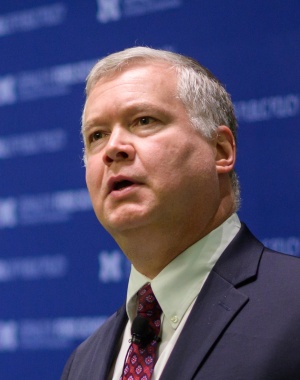Meets 08/29/22-10/14/22 (Drop/Add Deadline: 09/12/22)
This course will focus on understanding the modern conditions and challenges facing American foreign policy makers in the 21st century. The class will be taught from a practitioner’s perspective and will seek to illustrate and assess the choices available to American leaders in the post-Cold War period when making foreign policy decisions on matters such as the Balkan wars after the collapse of Yugoslavia, NATO enlargement, the war in Afghanistan (and the larger Global War on Terrorism), the war in Iraq, the evolution of US policy toward China, and the Russian invasion of Ukraine. While class discussions will touch upon these issues and more, the method of teaching will be to deconstruct the tools and processes that are essential to the successful execution of American foreign policy in the modern era.
Taught as a half semester course at the beginning of the Fall 2022 semester, the course will be broken down into seven weekly topics including sessions on US interests; American values; US foreign policy and national security tools and capabilities; the foreign policy interplay among US institutions and between the government and the public (to include Congress, the Executive Branch, the media, and public opinion - and politicians); when do we go to war, when don’t we, and why; and we will be wrapping up the final two weeks with a focus on Grand Strategy.
In order to stir discussion and debate, in preparation for weekly classes we will read journal articles and book chapters presenting different perspectives (realism vs. idealism, values vs. interests, hard power vs. soft power, grand strategy pros and cons, etc.). The goal for this course is to focus not so much on teaching what to think about American foreign policy but rather to work with the students to develop a framework for how to listen, think and decide for themselves on our nation’s contemporary foreign policy challenges and choices (all filtered through the lens of my own three decades of practical experience in and with government).
*Non-Ford students can register for Ford elective courses beginning Monday, June 13.

